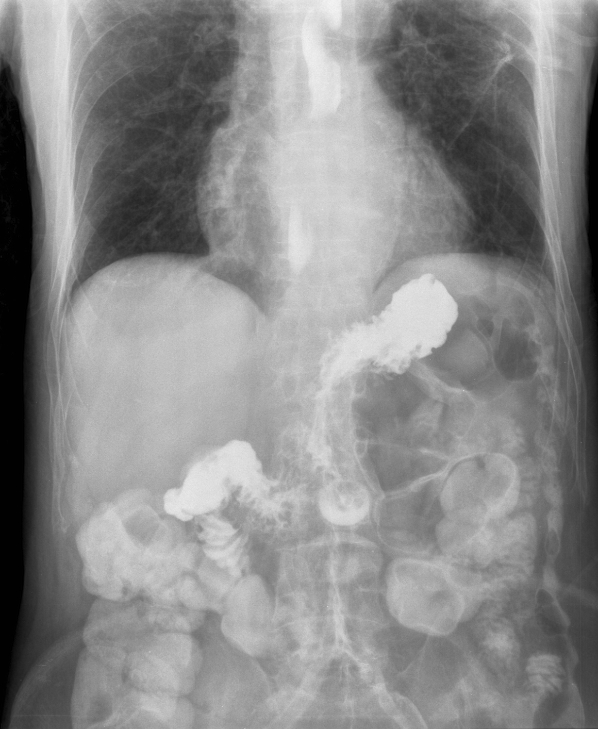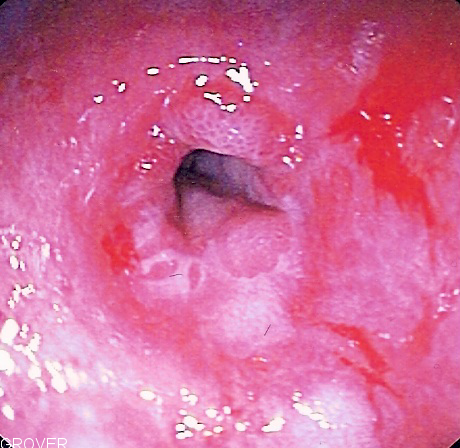If I haven’t mentioned it in prior entries, let me state now
that IBD suffers are far more likely to experience many of the conditions I’ve
mentioned in my entries. Things like eye
problems, kidney stones, GERD, and many others afflict Crohn’s suffers in much
higher percentages than non-IBD suffers.
As I experience these things or think about them, I am trying to write
entries about them.
A GERD episode I experienced last night inspired this entry. Normally my GERD episodes feel like normal
heartburn and I treat them by taking 1-2 Rolaids/Tums. Last night I experienced a feeling of intense
pressure and pain in the center of my chest.
Because I had gone to a hospital with these symptoms on a prior occasion,
I highly suspected this was GERD and not a heart attack. Therefore, I took 6 Tums, which had exactly
zero effect on the symptoms. Drinking 2
teaspoons of baking soda mixed in a glass of water finally alleviate the
symptoms.
What is GERD
GERD stands for Gastro Esophageal Reflux Disease. When people suffer from frequent heartburn
(stomach acid moving back through the gastro esophageal sphincter into the
esophagus), stomach acids begin to damage the sphincter and esophagus. Over long periods, this damage can lead to
ulcers in the esophagus and/or cancer.
This
is another, of the many, conditions that affects people with IBD more
frequently than the general population. If
you suffer from IBD, you may not develop GERD but you should watch for the
symptoms of GERD
Mayo clinic on GERD
X-ray with barium contrast of GERD reflux moving up through the esophageal sphincter
GERD Symptoms
The Mayo Clinic published a list of GERD symptoms. I most often experience simple
heartburn. I occasionally suffer from
pressure and a dull but powerful pain in the center of my chest. This chest pain caused enough distress on one
occasion that I went to an emergency room for a heart attack.
My GERD symptoms:
- Burning sensation in and above my stomach
- Burning sensation in my throat
- (rarely) pain and pressure in my chest feeling like it emanating from my heart
- (rarely) feeling like a weight pressing on my chest
- (rarely) intense nausea
WARNING: if you experience chest pressure and pain, especially with shortness of breath and/or arm or jaw pain, get to a hospital immediately. These symptoms can indicate a heart attack!
If you experience GERD symptoms frequently (more than twice
a week), then you need to speak to your doctor about treating it. Frequent heartburn can cause severe long-term
health consequences. Treating GERD in
its early stages can be easy.
Diagnosis
If your doctor suspects GERD, he may recommend performing an
endoscopy. This involves an outpatient
procedure in which he will sedate you, insert a flexible scope down your
throat, inspect your esophagus, and probably inspect your stomach and duodenum
(first chamber of your small bowel).
If you suffer from bowel issues and get colonoscopies on
regular basis, then your doctor will perform the endoscopy during your
colonoscopy.
Picture of GERD damage to esophagus (erosion, scarring, and
stricture)
During the endoscopy your doctor may take biopsies of the
esophageal tissues to look for abnormalities.
If you get a chance to read the biopsy results, Normal == good and
Abnormal == bad.
Medications
Over the years, my GI doctor treated my GERD with different
medications. These include Nexium
(esomeprazole magnesium), OTC Zantac (Ranitidine), prescription strength
Zantac, and prescription strength Prilosec (Omeprazole). I also treat myself with Tums (calcium
carbonate), bicarbonate of soda, and Pepto-Bismol when I suffer acute symptoms
of GERD.
If you think you have GERD, speak to your doctor about treating it.
Daily treatment
After my doctor diagnosed me with chronic GERD, he recommended
a treatment plan. Since he caught my
GERD early, this plan included daily medications to control the symptoms. The drugs I’ve used over the years include
Nexium, Zantac, and Prilosec.
Nexium
I consider Nexium the “gold standard” for treating
GERD. Taking one pill daily completely
eliminated all GERD symptoms for me. My
doctor’s endoscopy showed that the damage my GERD had caused had healed. However, my prescription insurance removed Nexium
from its formulary. This made Nexium a very
expensive treatment for me (~ $120 / month), so I asked my doctor to prescribe
a different medication.
You must take Nexium daily and regularly for it to
work. It will not stop heartburn if you
are already experiencing symptoms.
Zantac
Zantac (especially generic Zantac covered by my health
insurance), was very inexpensive (~ $3 / month). Initially it worked well for me. However, I sometimes I experienced “breakthrough”
heartburn. Over time, the breakthrough
heartburn increased in frequency.
Eventually, my doctor had to change my prescription.
Zantac will reduce current heartburn symptoms; however, it
takes a long time to feel its effects. I
recommend taking another medication (like Tums/Rolaids) for more immediate
relief of heartburn symptoms.
Prilosec
I’ve found Prilosec to work better than Zantac but not as
well as Nexium. Using prescription
insurance, I’ve found the costs for the generic higher than generic Zantac too
but still quite affordable. Usually, if
I forget to take a dose, I do not suffer GERD.
However, if I forget two consecutive doses I usually experience
GERD. Rarely when I do not forget any
doses, I get breakthrough heartburn anyway.
You must take Prilosec daily and regularly for it to
work. It will not stop heartburn if you
are already experiencing symptoms.
Breakthrough heartburn
When I get heartburn despite my GERD medications, then I use
a variety of different heartburn medications.
These include calcium carbonate (e.g. Tums), bicarbonate of soda, and Pepto-Bismol. These remedies do not stop the reflux (fluids
moving from the stomach back into the esophagus), however, they do reduce the
damage that reflux causes by reducing the acidity of stomach acids (using antacids for GERD).
Calcium carbonate
Most OTC antacids (Tums, et al) use calcium carbonate to
neutralize stomach acids. For occasional
use in most people, this works fine.
However, taking too much calcium carbonate can cause constipation in
some people. Since I suffer from almost
constant diarrhea from my IBD, this does not bother me at all.
However, taking a lot of calcium carbonate can also cause
kidney stones. I have had kidney stones
before (calcium oxalate – but I discuss that in another blog) so this does
concern me. Because these tablets are
terribly convenient, I do still use them.
However, I try to use Pepto-Bismol, whenever possible to give my kidneys
a break.
Bicarbonate of soda (aka baking soda)
I have not found any OTC medications that use baking soda as
an active ingredient. However, you can
take this remedy by putting one or two teaspoons of baking soda into a glass of
water and then drink it. It will taste
terrible (it tastes very VERY bitter to me but some people don’t mind the taste
as much as I do).
This home remedy works MUCH faster than any other treatment
I’ve ever tried. I start to feel better
in seconds and it can eliminate my symptoms in just a few minutes. It doesn’t cause kidney stone or constipation
problems. Other than taste and
convenience, I’ve found this to be the best remedy.
Pepto-Bismol
In my opinion, it tastes better than baking soda but worse
than calcium carbonate. It works slower
than calcium carbonate and it can cause constipation. However, as far as I know, it does cause
kidney stones. If you suffer from kidney
stones, use this as a replacement for Tums/Rolaids when you can.
Summary
- Regular heartburn will lead to more serious medical issues
- In its early stages, doctors can treat your GERD with daily medication and prevent those issues
- More serious GERD or long-term damage from it may require surgery.
- Treat breakthrough heartburn with OTC remedies; choose your remedy carefully depending upon your underlying issues
- Some GERD symptoms mimic heart attack symptoms. If you have any doubt about them, get to an emergency room.


No comments:
Post a Comment